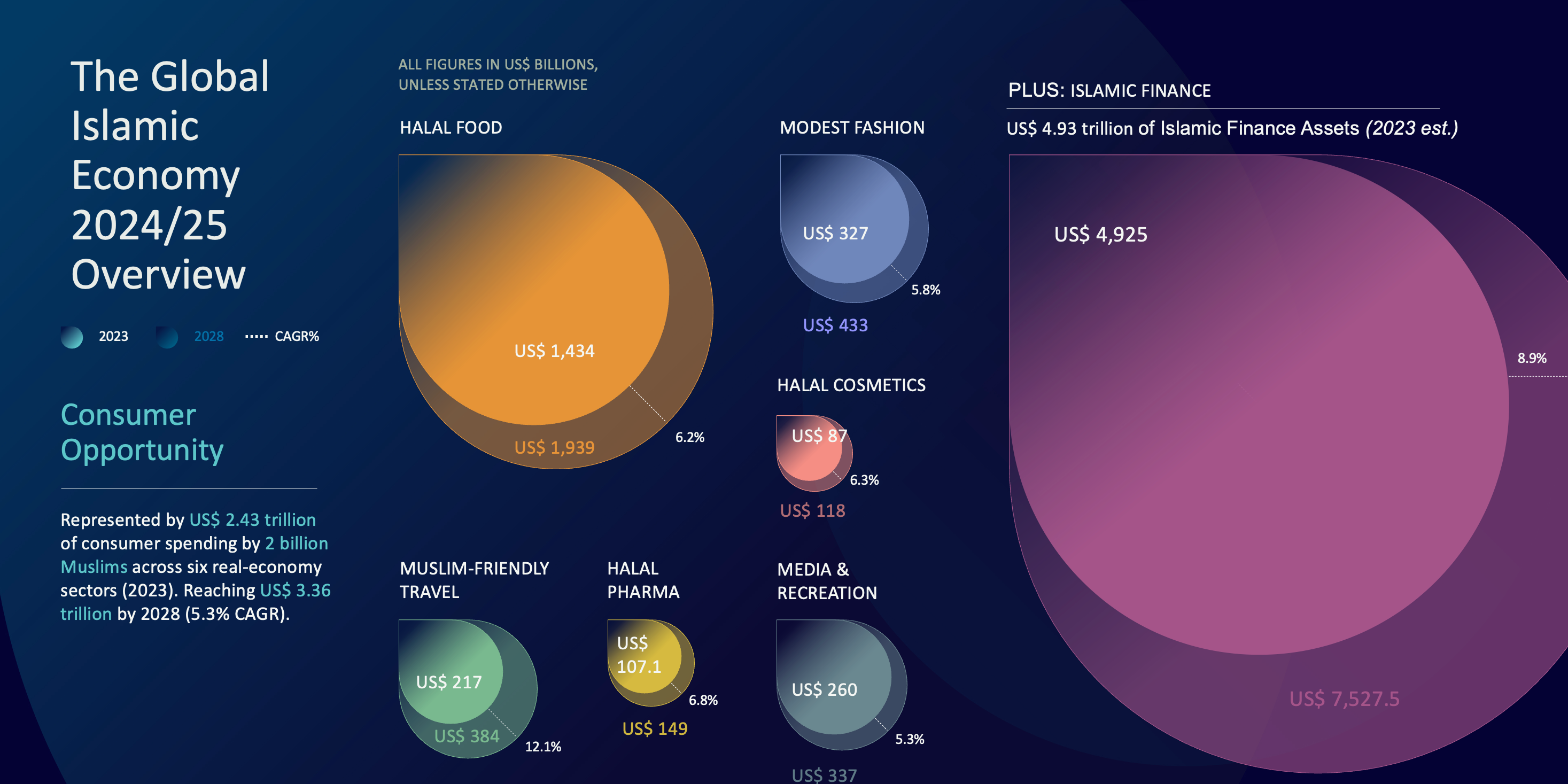The Global Islamic Economy 2024/25 Overview: Muslim consumer market size and trajectory
Largest and fastest-growing sectors
Halal food retains pride of place, accounting for almost three-fifths of total spend with US $1.434 trillion in 2023 and on track for US $1.939 trillion by 2028. Yet the most dramatic expansion is earmarked for Muslim-friendly travel, whose post-pandemic rebound is tipped to deliver a 12.1% CAGR, taking the market from US $217 billion to US $384 billion in just five years. Halal pharmaceuticals (6.8% CAGR) and halal cosmetics (6.3% CAGR) also outpace the headline growth rate as Muslim consumers pivot toward health, wellness and ethical beauty solutions.
|
Sector |
2023 spend |
2028 forecast |
5-yr CAGR |
|
Halal Food |
US $1.434 tn |
US $1.939 tn |
6.2 % |
|
Muslim-friendly Travel |
US $217 bn |
US $384 bn |
12.1 % (fastest) |
|
Modest Fashion |
US $327 bn |
US $433 bn |
5.8 % |
|
Halal Media & Recreation |
US $260 bn |
US $337 bn |
5.3 % |
|
Halal Pharmaceuticals |
US $107 bn |
US $149 bn |
6.8 % |
|
Halal Cosmetics |
US $ 87 bn |
US $118 bn |
6.3 % |
Islamic finance asset size
- US $4.93 trillion in global Islamic-finance assets (2023).
- Expected to reach US $7.53 trillion by 2028 (8.9 % CAGR), underscoring capital depth that underwrites the wider halal economy.
Best-performing national ecosystems (GIEI 2024)
-
- Malaysia
- Saudi Arabia
- Indonesia
- UAE
- Bahrain
Trade, investment and consumer signals highlighted
- US $407.8 bn worth of halal-related goods imported into OIC states in 2023, forecast to rebound sharply to US $608 bn by 2028 (8.3 % CAGR).
- OIC member countries remain heavily reliant on imports, posting a US$ 76.37 billion trade deficit in halal related products.
- Only 3 OIC nations in the top 10 exporters to OIC countries for halal related products.
- US $5.8 bn invested across 225 Islamic-economy deals (Aug 2023–Jul 2024); Media & Recreation largest by count, Islamic Finance largest by value.
- Key signals mapped include AI-powered halal certification, blockchain traceability, localisation of supply chains and the rise of halal-oriented VC/PE funds.

